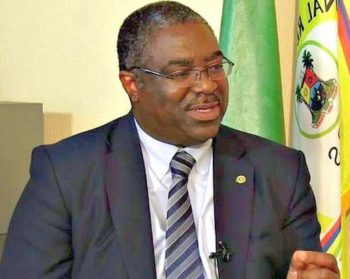
The Federal Inland Revenue Service (FIRS) said it collected a total of N4.03 trillion in the 2017 fiscal period.
The collection of N4.03 trillion, according to a statement issued by the agency, represents 82.38 per cent of government target of N4.89 trillion for the year.
The revenue of N4.03 trillion, is however, N720 billion more than the 2016 total collection figure of N3.3 trillion.
An analysis of the collection performance indicates that taxes from non-oil sources accounted for 63 per cent, while oil tax accounted for 38 per cent of the total collection.
Stamp Duty recorded the most increase in performance with 94 per cent during the 2017 fiscal period.
It said the Executive Chairman, FIRS, Tunde Fowler disclosed the collection figures in Lagos at the palace of the Oba of Lagos, Rilwan Akiolu.
The statement quoted him to have said, “With the support of the National Assembly, your support and that of other stakeholders, FIRS was able to collect over N4 trillion in 2017.
“This is an increase of over 20 per cent relative to our collection in 2016. We are hopeful that going forward, FIRS will be able to fund this country through taxation.”
“We all recall that beginning from the second half of 2014, there has been a sustained decline in the global prices of oil.
“Oil revenue generated by FIRS in 2014 – N2.45 trillion; oil revenue generated in 2015 – N1.29 trillion; FIRS oil revenue generated in 2016 – N1.16 trillion; FIRS oil revenue generated in 2017 – N1.52 trillion.
“This trend has had adverse effect on the ability of oil dependent countries to meet their development objective,” he was quoted as saying.
Fowler said the decline in receipts from oil revenue and the resultant decline in accruals to states from the federation account has placed many states in a financial stress to the point where basic obligations such as the payment of employee wages has become a perennial challenge.
“This is not the first time Nigeria will experience economic slow-down as a result of fluctuations in global oil prices.
“This retreat, and what it hopes to achieve is part of efforts to ensure that we act differently this time around by looking beyond oil as the mainstay of our economy.
“By putting our hands together in contribution to our set goal, I am confident that we will surpass our past results and we’ll be well on our way to the future we hope to achieve,” he added.